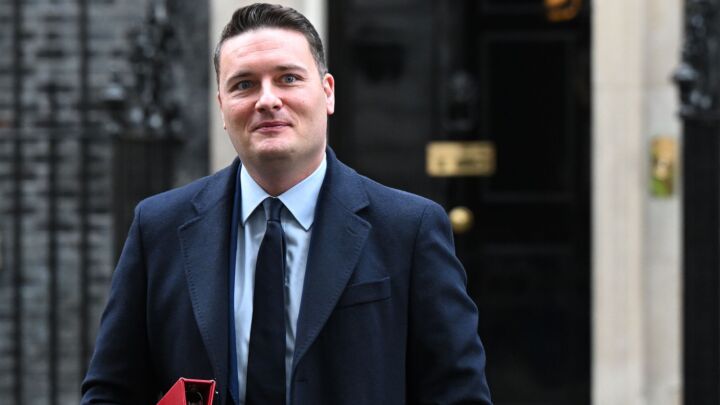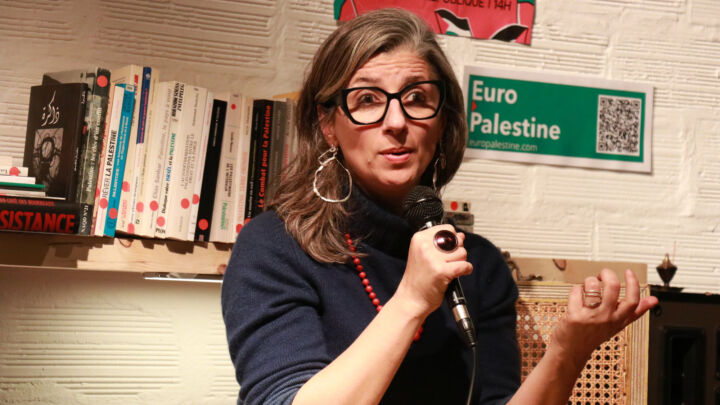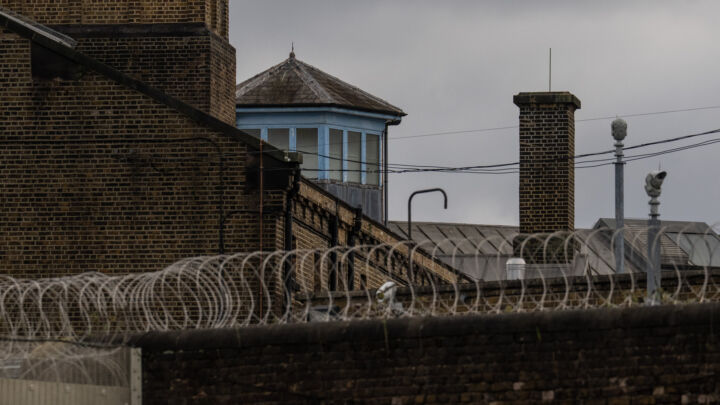After Liverpool: they still want to silence the public
Officialdom wants to manage what we know, say and think about this tragedy.

Want unlimited, ad-free access? Become a spiked supporter.
It was supposed to be a day of celebration. Tens of thousands of fans of Liverpool FC flooded into the city centre yesterday to celebrate their team winning the Premier League. Then, around 6pm, horror struck. A car ploughed into the crowds lining the streets for a victory parade. Almost 50 people were injured, four of them children. Mercifully, no one has died so far.
Unusually, within just two hours of the incident, Merseyside Police issued a statement about the suspect, revealing that they had arrested a ‘53-year-old white British man from the Liverpool area’. While much about the tragedy remains unclear, the police also confirmed that this is not being treated as a terrorism-related incident.
The authorities’ eagerness to release this information – and to release it quickly – stands in stark contrast with their handling of that other infamous tragedy in Merseyside: the murder of three children at a dance class in Southport last July, which prompted days of rioting. Back then, the authorities revealed only scant details about the suspect, Axel Rudakubana, on the day of the atrocity – namely, that he was a ‘17-year-old male from Banks in Lancashire, who is originally from Cardiff’, and that the murders were not being treated as terror-related.
This was partly due to his age, as he was a minor at the time. But then that would only stop police releasing his full name or anything that would breach his right to anonymity. In truth, officialdom was worried about saying too much for fear of aggravating the public. This was confirmed several months later, when Rudakubana was belatedly charged with possessing ricin, a biological toxin, and a PDF of an al-Qaeda training manual. Even then, we were only informed of all this two weeks after the charge was issued. The authorities kept it quiet out of a fear it would spark a fresh round of rioting.
Limiting discussion about the Southport attack was a clear priority for the powers-that-be. ‘Think before you post’, tweeted government social-media accounts, warning that certain posts about the murders could be ‘illegal’. This was not intended as a helpful reminder about laws on contempt of court or hate speech. It was plainly an attempt to shut people up.
As is now known, this effort to keep certain facts under wraps and silence people backfired spectacularly. The information vacuum was filled by wild speculation and conspiracy theories, pushed by bad actors with big social-media accounts. Falsehoods about the attacker being a Muslim asylum seeker flourished, at least in part, because they couldn’t be dispelled with accurate information. This ended up sparking precisely the reaction that the authorities feared, with some of the worst rioting in decades spreading across England and even to Northern Ireland.
Does the response after the incident in Liverpool suggest the authorities might have learned some lessons? Certainly, the excuse trotted out by Merseyside Police and the Crown Prosecution Service last July, that disclosing more details about Rudakubana would collapse a future trial, has been exposed as nonsense by last night’s speedy revelations. Peter Williams, former senior officer with Merseyside Police, has described this as a ‘complete step change’ in police communications, following harsh criticism of the authorities in ‘the aftermath of Southport’.
However, the fear of the people that drove the Southport response, and the instinct to manage the public mood, has not gone away. As the BBC reports, it is all too clear why the race of the Liverpool suspect was revealed so quickly: this was a ‘clear attempt to damp down inaccurate speculation on social media that the Ford Galaxy driving into Liverpool fans was part of an Islamist terrorist attack, or was in any way linked to migrants’. It was obviously feared that such speculation could spark a racist backlash. Rudakubana’s ethnicity, on the other hand, was presumably not disclosed out of precisely the same fear. In both cases, the authorities betray their low view of the public, assuming we are always just one terrible tragedy away from launching a pogrom.
Of course, there is no amount of accurate information that could be released that would satisfy those who are determined to sow division on the back of this incident or any other. Hard-right ghouls have been out in force online after the Liverpool horror with their own theories, even after the disclosures about the suspect. Paul Golding of Britain First was quick to declare a ‘cover-up’ as soon as the suspect had been revealed to be white British.
Thankfully, the vast majority of people remain immune – and indeed oblivious – to the nonsense of the racist right. Those who rioted last summer certainly do not speak for the majority.
But bad actors nevertheless feed off of a growing suspicion of the police, for which the police only have themselves to blame. The two-tiered nature of the criminal-justice system, however fiercely the political class defends it, has significantly eroded trust and gives genuine bigots more room to operate.
So, they withheld information after Southport because they don’t trust ordinary people. They gave us more information than usual after Liverpool because they still don’t trust ordinary people. And all the while this pleb-fearing, inconsistent approach has only been a boon to those who are genuinely out to spread hate.
In the wake of tragedies like last night’s in Liverpool, we need the authorities to be transparent and consistent – to keep the public informed on what the police know, and what lines of inquiry are being pursued. But officialdom’s deep fear and loathing of the public means we are still very far away from that.
Fraser Myers is deputy editor at spiked and host of the spiked podcast. Follow him on X: @FraserMyers.
You’ve hit your monthly free article limit.
Support spiked and get unlimited access.
Support spiked and get unlimited access
spiked is funded by readers like you. Only 0.1% of regular readers currently support us. If just 1% did, we could grow our team and step up the fight for free speech and democracy.
Become a spiked supporter and enjoy unlimited, ad-free access, bonus content and exclusive events – while helping to keep independent journalism alive.
Monthly support makes the biggest difference. Thank you.











Comments
Want to join the conversation?
Only spiked supporters and patrons, who donate regularly to us, can comment on our articles.